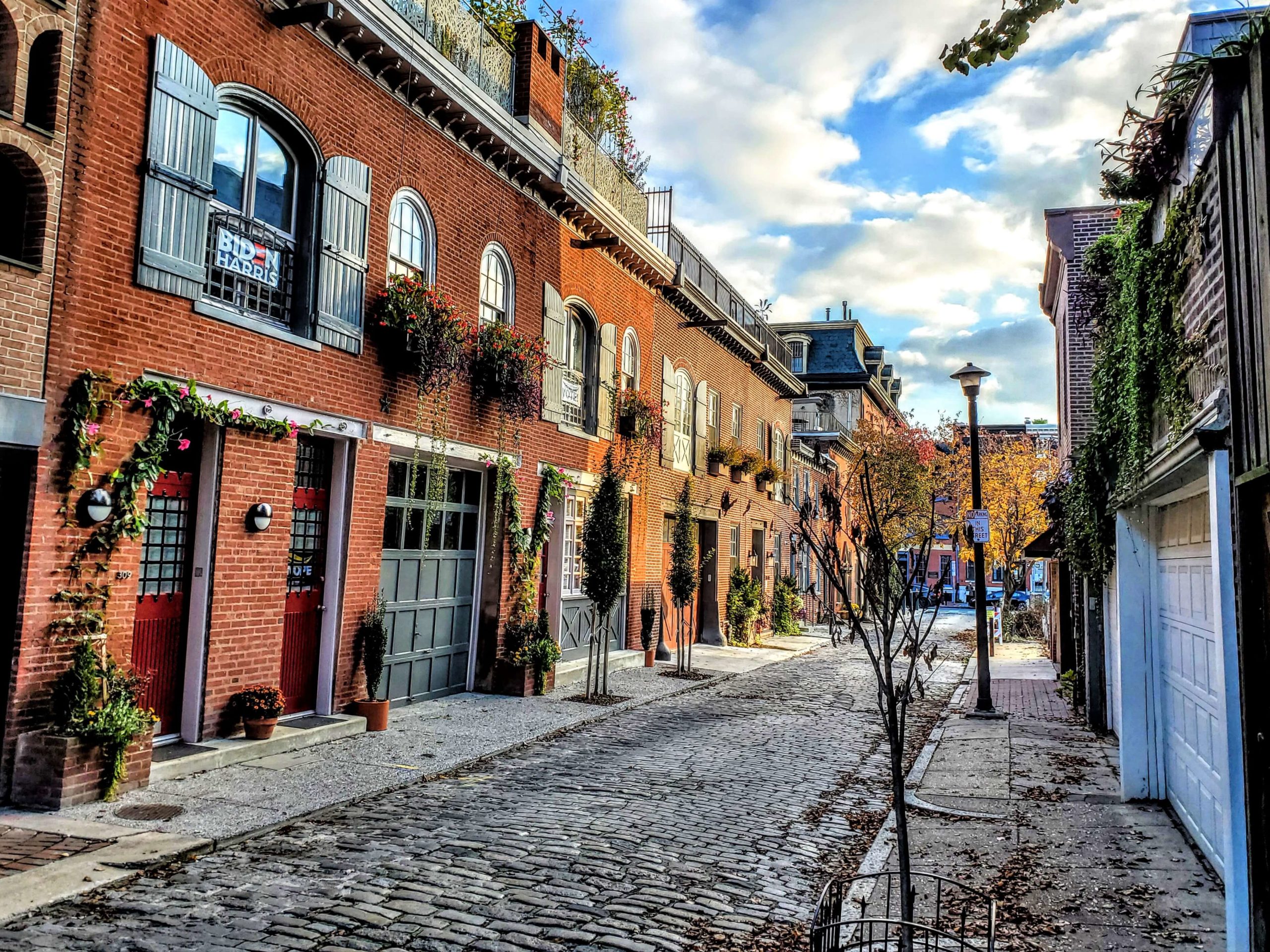Happy New Year from Permit Philly! We don’t want to shock you, but we have something terrible to report: 2020 was a bad year. I’m sorry you had to hear it from us. But bad years aren’t the same as unimportant years, and in 2020 there were a lot of important changes to the Philadelphia permit process that will affect development in 2021. Here are the most important: the top 5 changes to the Philadelphia permitting process for 2021.
1. Philadelphia permits went online
We’ll write more about this in a later post this January, but the jump to online permitting back in March – which, ironically, was scheduled to take place the exact day the City shut down for COVID-19 – has been the biggest single change to the Philadelphia permit process in the last year. It’s also the very top of our top 5 changes to the Philadelphia permitting process in 2021, because the transition continues into the new year.
At first – in March and April – there were so few building and zoning permits filed that the system felt almost perfect. From isolation in our homes, we at Permit Philly were able to continue filing permits without the hours of waiting at Licenses and Inspections. When we asked a question by email, it was answered within 90 minutes.
Then, the construction ban lifted, and with it the floodgates: problems poured in. The system crashed constantly. Rules were changed without warning. Technical glitches kept plans and permits from being released on time. Reviews were missed, inconsistent, or not reported. Worse still, the only customer support was the City’s 311 service line, which meant a hold of up to three hours just to be told, “check the website.” (In fairness to 311: it can be useful for simple City services; just not for most online permitting matters.)
Things slowly stabilized. We discovered some recurring problems – for example, many contractors needed to update their insurance by submitting an amendment, not actually using the “update insurance” button in the system (it was a trap). The new accelerated application fees were confirmed in August (these are $2,000 for a building permit or combination permit, and $1,050 for a zoning permit or single mechanical/electrical/plumbing/fire-suppression permit). Rules about which permits could and couldn’t be combined in a single application were established.
The system is still plagued by design flaws, but we’ve now been working in it enough to know what problems to expect, and how to get them addressed. So, if you’re frustrated by eCLIPSE, feel free to contact Permit Philly! We expect even more changes to the Philadelphia permitting process in 2021, but know where to look for them and how to manage them.
2. Instant outdoor dining permits – now through 2021!
We wrote about this back in June, when this program was announced: Philadelphia allowed outdoor sidewalk dining (with a valid, current food license) after only a three-day review, to help keep restaurants afloat during indoor dining bans or limits.
In one of our top 5 changes to the Philly permitting process for 2021, City Counsel decided to extend these temporary permits right through 2021. You can apply for near-instant approval for sidewalk and certain parking-lane dining.
Keep in mind that you still need a regular old building permit for structures overhanging these new outdoor dining areas, or for walls or other structures above four feet. So all those street dining houselets along Sansom required building permits – same for those on South Street. There are also a lot of regulations about how to maintain safety while serving, though it’s anyone’s guess how well those are enforced.
3. The residential tax abatement was extended through 2021… but will expire in 2022
Our friends at Nochumson P.C. have a great piece about this already up on their blog, but here’s the short story: for a number of years, the City of Philadelphia has offered a tax abatement of 100% of the value of the improvement of a residential property for ten years after development. Basically, if you turned a decaying rowhome into a yuppie palace with a roof deck, you wouldn’t have to pay increased property taxes for ten years. This system was designed to encourage development of decaying rowhomes in Philly – of which there are a lot!
However, the program became associated – rightly or wrongly – with major changes to the character of the City, and with the idea that poorer residents were being forced out in favor of wealthier newcomers with white-collar jobs. (We at Permit Philly are just describing what has been said about the abatement – we get permits for both yuppie palaces with roof decks and simple homeowner renovations!)
Because of this, eventually City Council agreed to end the residential abatement at the end of 2020.
And let us tell you: that resulted in a lot of permit applications in November 2020. There were tears; there were late nights; there was a lot of digital paperwork. However, in the end the City extended the life of the abatement for one more year, in light of the chaos brought forth by COVID-19. Now, all residential projects that have a building permit by end of 2021 can apply for a tax abatement. After that, the value of the abatement will be reduced by about half.
This was part of a political negotiation, though: in exchange for an extension of this tax abatement…
4. The construction tax is coming in 2022
As detailed by Plan Philly, a 1% construction tax is coming to all new residential construction that requires a building permit. This means anything from putting a building where there used to be no building, to just getting a new certificate of occupancy.
Now, eagle-eyed readers will have noted that we said the tax is coming to all new residential construction. Commercial construction is exempt. So: if you create a mixed-use structure of any kind, you are probably not on the hook for this tax. We have to say “probably” because the City’s guideline is vague at this point: it just says that the tax will be levied on new construction of or improvements to “any structure for human occupancy for residential purposes.” So dog shelters are safe!
Licenses and Inspections has to write out more specific guidance, but all the reporting on this bill suggests that the dividing line will be simple: work on single- and two-family homes will definitely be taxed, and work on large apartment buildings will probably be taxed. Mixed-use buildings, buildings with no apartments, and industrial buildings will not be taxed.
Some minor renovations will also be allowed without being subject to the tax – most likely EZ permits. We don’t know what these will be just yet – City Council has given the City departments till April 1st to sort it out.
5. There’s a new overlay district in Strawberry Mansion
The last of our top 5 changes to the Philadelphia permitting process for 2021: a win for City Council President Darrell Clarke, as the Strawberry Mansion neighborhood got itself an overlay district at the end of 2020.
(If you don’t know what an overlay district is, check out our explanation of the term.)
Overlay districts usually go to neighborhoods that have the political clout (read: expensive homes and political donation money) to protect the feel of their area. This Strawberry Mansion overlay is the first to be awarded to a predominantly black, poorer area of Philadelphia. For this reason, a lot of the coverage has been favorable.
However, developers should know that the overlay is very severe. The goal is, simply, to keep Strawberry Mansion a neighborhood of single-family, two- and three-story homes with porches. No roof decks; no rowhomes without porches if their neighbors have porches; and no “vinyl; stucco; horizontal aluminum; exterior insulation finishing system (EIFS); or concrete masonry unit” facades visible from the street.
Further, the overlay district specifically prohibits density and height bonuses. The Philadelphia Zoning Code normally allows for various “bonuses” of height or density – meaning, if you do something the City of Philadelphia likes with your development (like pay into the City’s low-income housing fund), you can build a little taller or squeeze more units into your building. In the new overlay district, these bonuses will not apply: you can build as tall as the overlay district allows, in the style the overlay district allows, with a front porch and no roof deck. End of discussion.
Again, in some quarters this overlay is very popular, and many residents of Strawberry Mansion itself appear to support the move. It just means developers need to be very careful in their planning for any Strawberry Mansion developments.
Check back in throughout 2021 for more news and updates about the Philadelphia permitting process! And as always, contact us with any questions.

